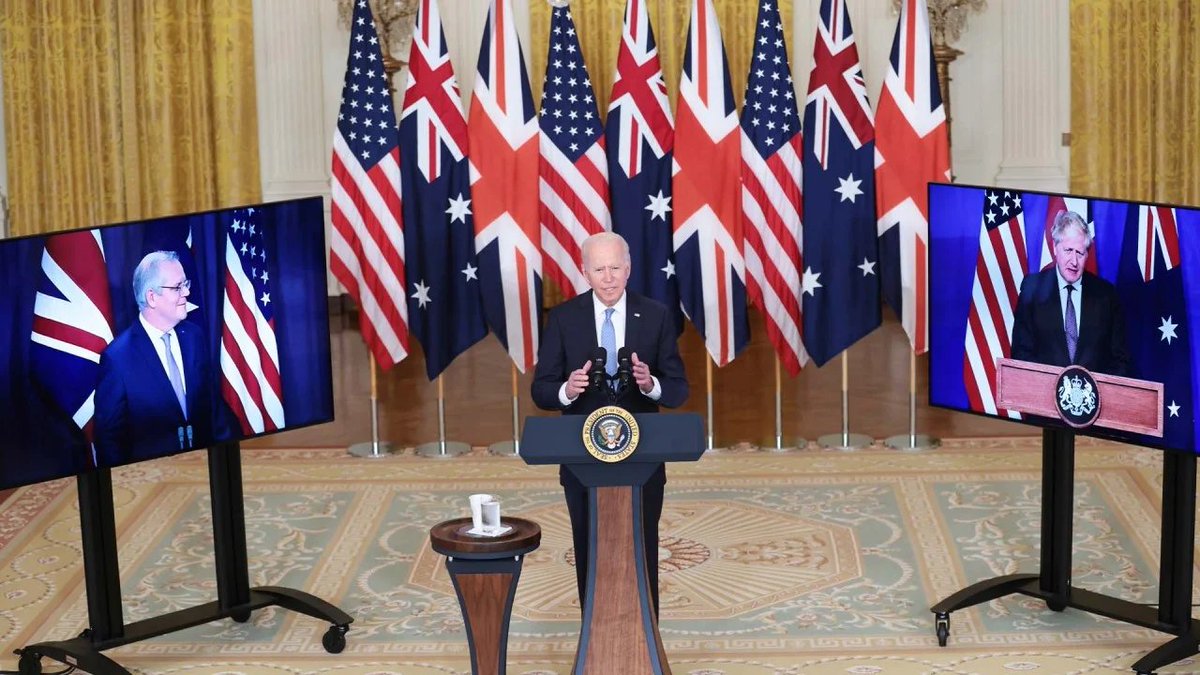
Does it matter if 🇺🇸-🇨🇳 rivalry is referred to as "Strategic Competition" instead of "Great Power Competition"?
Yes! When coupled with recent actions, it tells us the direction of 🇺🇸 foreign policy towards 🇨🇳.
[THREAD]
Yes! When coupled with recent actions, it tells us the direction of 🇺🇸 foreign policy towards 🇨🇳.
[THREAD]
For background, this week the Biden administration confirmed that it will be using the phrase "strategic competition" to refer to its approach towards 🇨🇳
politico.com/newsletters/na…
politico.com/newsletters/na…
In the "just semantics" spirit, folks were having fun with the announcement. See this...
https://twitter.com/KofmanMichael/status/1446176501242728454
...and this...
https://twitter.com/JJSchroden/status/1446252362721599488
...and this...
https://twitter.com/Nick_L_Miller/status/1445900814610878467
..., oh, and this one too.
https://twitter.com/pkmacdonald/status/1446123782909804547
Those are great, but maybe there is a `there, there' worth thinking about? @kjmcinnis1 thinks so.
https://twitter.com/kjmcinnis1/status/1445831550541582340
If the change in the phrase is meaningful, what is the meaning? 🤔
One meaning of "strategic competition" is that it singles a subtle detente, with the possibility of improved relations.
As @DanielLarison points out, "Great Power Competition" has a strong "militarized conflict" connotation that's best to be avoided.
original.antiwar.com/Daniel_Larison…
original.antiwar.com/Daniel_Larison…
Indeed, the phrase "strategic competition" echoes another one popular with the Biden administration: "responsible competition".
https://twitter.com/michaelsobolik/status/1445814911234310145
The idea of "responsible" or "healthy" competition has been used by 🇨🇳 officials as well. For example, here is what President Xi Jinping said this year at @Davos:
Source: xinhuanet.com/english/2021-0…
Source: xinhuanet.com/english/2021-0…

Another meaning of "strategic competition" is that it singles a potential worsening of relations.
Nadia Schadlow hints at this possibility near the end of the above @politico article.
“China is a great power, with significant military and technological strengths....Does the new tag line suggest otherwise?”
“China is a great power, with significant military and technological strengths....Does the new tag line suggest otherwise?”
I think there is something to this claim.
As @MadeleineInez pointed out this week during a discussion with our undergrad students, it allows the Biden administration to subtly (or even not so subtly) avoid talking about China as a "Great Power"
As @MadeleineInez pointed out this week during a discussion with our undergrad students, it allows the Biden administration to subtly (or even not so subtly) avoid talking about China as a "Great Power"
In that sense, the Spider-man meme above has it about right: notice the "strategic competition" Spider-man has his back turned, rather than facing head-on. 

Hence, the shift in language is all about "status" posturing. As @Steven_m_ward writes, "status has to be recognized by others in order to be real".
amazon.com/Status-Challen…
amazon.com/Status-Challen…
Achieving "Great Power" status has always been about more than simply achieving an objective measure of power (though that's not unimportant, as @PSBenFordham points out in this @JPR_journal piece)
journals.sagepub.com/doi/abs/10.117…
journals.sagepub.com/doi/abs/10.117…
Instead, you have to be recognized (literally called) a Great Power.
For example, the main allies during World War I were "Great Powers" because, well, they called themselves "Great Powers". Below is the text from the Rapallo treaty establishing the Supreme War Council
For example, the main allies during World War I were "Great Powers" because, well, they called themselves "Great Powers". Below is the text from the Rapallo treaty establishing the Supreme War Council

But was Italy really in the same league as Britain and France? Not really, and this became evident during the Treaty of Versailles negotiations in 1919 (where the Italian delegation actually left the proceedings at one point over their treatment)
amazon.com/Paris-1919-Mon…
amazon.com/Paris-1919-Mon…
So if you couple the "strategic competition" phrase with #AUKUS...
https://twitter.com/ProfPaulPoast/status/1439205627297939456
...the continuation of the "Trade War"...
nytimes.com/2021/10/04/bus…
nytimes.com/2021/10/04/bus…
...and the news that 🇺🇸 troops are (and have been) stationed in 🇹🇼, it's clear that a warming of relations is not on the table.
wsj.com/articles/u-s-t…
wsj.com/articles/u-s-t…
In a way, the choice to emphasize "strategic competition" relates well to the research by Roseanne McManus regarding "Statements of Resolve"
amazon.com/Statements-Res…
amazon.com/Statements-Res…
McManus actually directly addresses the role of rhetoric in 🇺🇸🇨🇳 relations - the nuance in the phrase is important. 

There is a big danger here. If the 🇺🇸 is using rhetoric (coupled with actions) to diminish 🇨🇳's status and impede 🇨🇳's ambitions, could 🇨🇳 take matters into its own hands, perhaps aggressively (see @jrenshon)?
amazon.com/Fighting-Statu…
amazon.com/Fighting-Statu…
Given ongoing conflicts and disputes by 🇨🇳 w/ 🇹🇼🇮🇳🇯🇵, etc, coupled with internal issues, a "fight" for status is a REAL possibility.
foreignpolicy.com/2021/09/24/chi…
foreignpolicy.com/2021/09/24/chi…
In sum, "strategic competition" is a meaningful phrase, as it reinforces the worsening of relations between 🇨🇳 & 🇺🇸.
[END]
[END]
• • •
Missing some Tweet in this thread? You can try to
force a refresh









